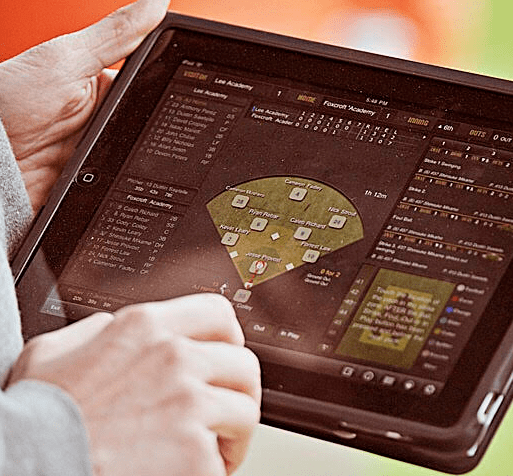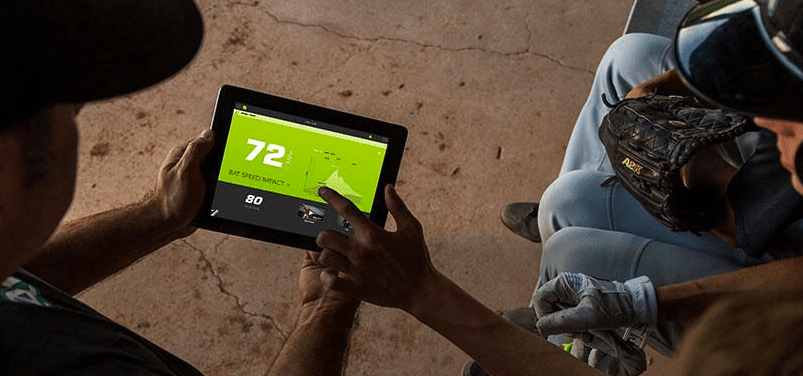AMERICA’S PASTIME: HOW TECHNOLOGY IS CHANGING MAJOR LEAGUE BASEBALL AS WE KNOW IT
A Conversation with Boston Red Sox Vice President of Player Personnel Jared Banner

Baseball has long been thought of as "America's pastime." There are probably many reasons. Warm weather, the aroma of freshly grilled hot dogs, homeruns flying out of the ballpark.
Another reason may be the simplicity of the game and the human element. While other sports were busy inserting technology and replay delays, baseball remained purely human. The NFL started instant replay on limited basis in 1986, and went to the current system in 1999. The NBA did it in 2001. It wasn't until 2008 that the last holdout, MLB caved to the more accurate technology.
Understandably, many baseball fans were not happy when their sport went the way of the others. Giving teams the right to challenge the call of the umpire after they view the replay themselves, and then
having the umpires get on the phone to MLB headquarters for their final decision, did not fit with tradition. [1]
But fans need to realize that baseball will not sit by and let technology pass them by. MLB Commissioner Rob Manfred is tinkering with a delicate combination of the human element complemented by gearing the league towards full technological development.
For example, the utilization of their StatCast system has allowed teams
to assess the skills in young prospects like never before. This system uses a wide range of high-tech radar equipment and cameras to track every little movement of all objects and the players on the field. Terms like “exit velocity” and “launch angles” for batters were non existent until 2016, mainly because they were always nearly impossible to accurately measure. Now that the information is easily available, a new science to hitting in baseball has been established. [2]
“It is always a good thing to have more accurate information, it’s great to have that.” says Boston Red Sox Vice President of Player Personnel, Jared Banner, whose job includes overseeing the scouting of players in international leagues across the globe.
He went on to say that, “Gathering as much information as possible makes the world a little smaller than it used to be. The more data there is available, the better.”
Banner is correct about the world being a smaller place. For years MLB has scouted and signed players from South American countries. Now, you are seeing more players recruited from the other side of the
globe as well, including Japanese stars u Darvish, Hideki Matsui, Masahiro Tanaka, and Shohei Otaani. All have made a major impact bringing their talents to the American baseball fans.
However, there is still that concern out there that too much technology put into use will ruin the beauty of the game. Banner tried to be reassuring, "There is a time and a
place for the human element to the game."

His belief is that technology will in fact improve the game, but it must coexist with what has made baseball so appealing to fans throughout so many decades.
Who knows what kind of technological advances lie ahead for the Major Leagues. What kind of stats are yet to come? This will surely be a positive. Technology has already helped, The question is , how far will it go?
Read more from RebellionResearch.com:
Why a Machine Learning Investment?
Interview with Astronaut Scott Kelly: An American Hero
AQUAPONICS: How Advanced Technology Grows Vegetables In The Desert
A New Breed of Airline Looks to Take the World by Storm!
$91 Million for a Pair of Gloves: Chelsea Leads Global Sports' Spending Spree
The World Cup Does Not Have a Lasting Positive Impact on Hosting Countries…
Dating Wine Using Nuclear Signatures
Baseball Attendance Keeps Falling
Giancarlo Stanton: A $300 Million Dollar Question Mark
A Conversation with Boston Red Sox Vice President of Player Personnel
Derek Jeter is Facing up to Half a Billion Dollars of Losses on the Miami Marlins
On Black Holes: Gateway to Another Dimension, or Ghosts of Stars’ Pasts?
Are Derek Jeter & the Miami Marlins Going to Face a Cash Crunch?
Written by
Robert Malzberg, Edited by Alexander Fleiss
About Jared:
Jared begins his 1st season as Vice President, Player Personnel, 10th overall with the Red Sox organization, after serving as Director, Player Personnel in 2016. An Amherst College graduate with a degree in psychology, Banner first joined the club in 2007 as a fellow in the baseball operations department and has spent the past 3 years as Assistant Director, Player Personnel. Prior to that role, the Brooklyn, NY native worked as Assistant, Player Development (2008-09), Assistant, Amateur Scouting (2009-10), and Coordinator, Amateur Scouting (2010-12). While at Amherst College, Banner played four seasons (2004-07) of varsity baseball as an outfielder, and served as team captain in 2007.
Sources: